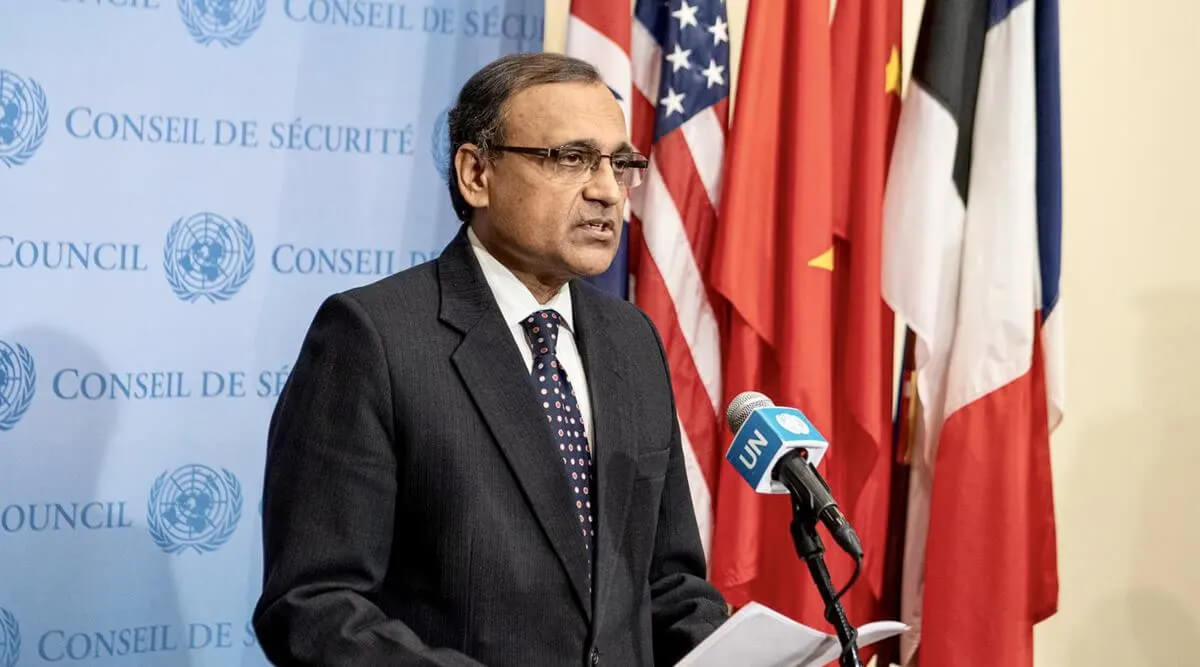On Wednesday, India criticised a motion introduced by Pakistan in the United Nations (UN) General Assembly about Islamophobia, asserting that rather than singling out intolerance against a single religion, members should instead seek to tackle ‘religiophobia,’ or discrimination against all religions. Regardless of India’s stance, however, the resolution was nonetheless adopted.
India’s Permanent Representative to the UN, TS Tirumurti, expressed India’s “deep concern” regarding religious intolerance, which he said has led to rising“discrimination, intolerance, and violence” against members of “many religious communities” across the globe. In this regard, he reiterated New Delhi’s commitment to pluralism and religious freedom, along with welcoming persecuted members of all religious minorities.
#IndiaAtUN
— India at UN, NY (@IndiaUNNewYork) March 15, 2022
UN General Assembly on Adoption of Resolution on the International Day to Combat Islamophobia
📺Watch: India’s Explanation of Position by Permanent Representative @AmbTSTirumurti ⤵️@MEAIndia pic.twitter.com/DxZ9NP1NKe
The Indian representative condemned acts of discrimination against religious groups “motivated by anti-Semitism, Christianophobia, Islamophobia.” However, he said that such phobias are not restricted to Abrahamic religions alone. To this end, he highlighted that there have been decades of evidence to show that there has been a developing “contemporary form of religiophobia” against non-Abrahamic religions, including Hinduism, Buddhism, and Sikhism. To corroborate his point, Tirumurti pointed to the increasing number of attacks on these religions’ places of worship along with the spread of hate and disinformation against them.
Tirumurti thus urged the General Assembly to “recognise the prevalence of religiophobia” instead of “singling out just one [religion].” He also conveyed India’s concern about “elevating the phobia against one religion to the level of an international day to the exclusion of others,” adding that the resolution was “downplaying the seriousness of phobias against all other religions.” The Indian envoy stated that the resolution could set a “precedent” for “multiple resolutions” on phobias against many other religions and “divide the [UN] into religious camps.”
Furthermore, he reminded the UN General Assembly that the group already had an inclusive International Day to Commemorate Victims of Acts of Violence Based on Religion and Belief, which was introduced in 2019, as well as an International Day of Tolerance. He therefore said that India is “not convinced” about the need to promote an international day for just one religion exclusively.
Along the same lines, French Ambassador to the UN Nicolas de Rivière stressed that the resolution did not underscore the need to “fight against all forms of discrimination,” as it merely selects one religion “to the exclusion of others” and makes no reference to the “freedom to believe or not to believe,” adding that “there may not be enough days in a year” to dedicate a specific day to “each degree of belief or non-belief.” He also raised concern that “Islamophobia” was not defined in any international law as compared to the freedom of religion or belief.
On the other hand, Pakistani Prime Minister Imran Khan celebrated the UN General Assembly’s decision to adopt the resolution, congratulating Muslims across the world for the recognition of the “rising tide of Islamophobia.” He added that the “next step” would be to “ensure implementation of this landmark resolution.”
I want to congratulate the Muslim Ummah today as our voice against the rising tide of Islamophobia has been heard & the UN has adopted a landmark resolution introduced by Pakistan, on behalf of OIC, designating 15 March as International Day to Combat Islamophobia.
— Imran Khan (@ImranKhanPTI) March 15, 2022
The resolution was introduced by Pakistan’s UN envoy, Munir Akram, on behalf of the Organisation of Islamic Cooperation (OIC) and co-sponsored by several countries—including Afghanistan, China, Saudi Arabia, Turkey, and the United Arab Emirates. Apart from declaring an International Day to Combat Islamophobia, the resolution also urges all countries to organise and support “high-visibility events” to increase awareness about Islamophobia.

